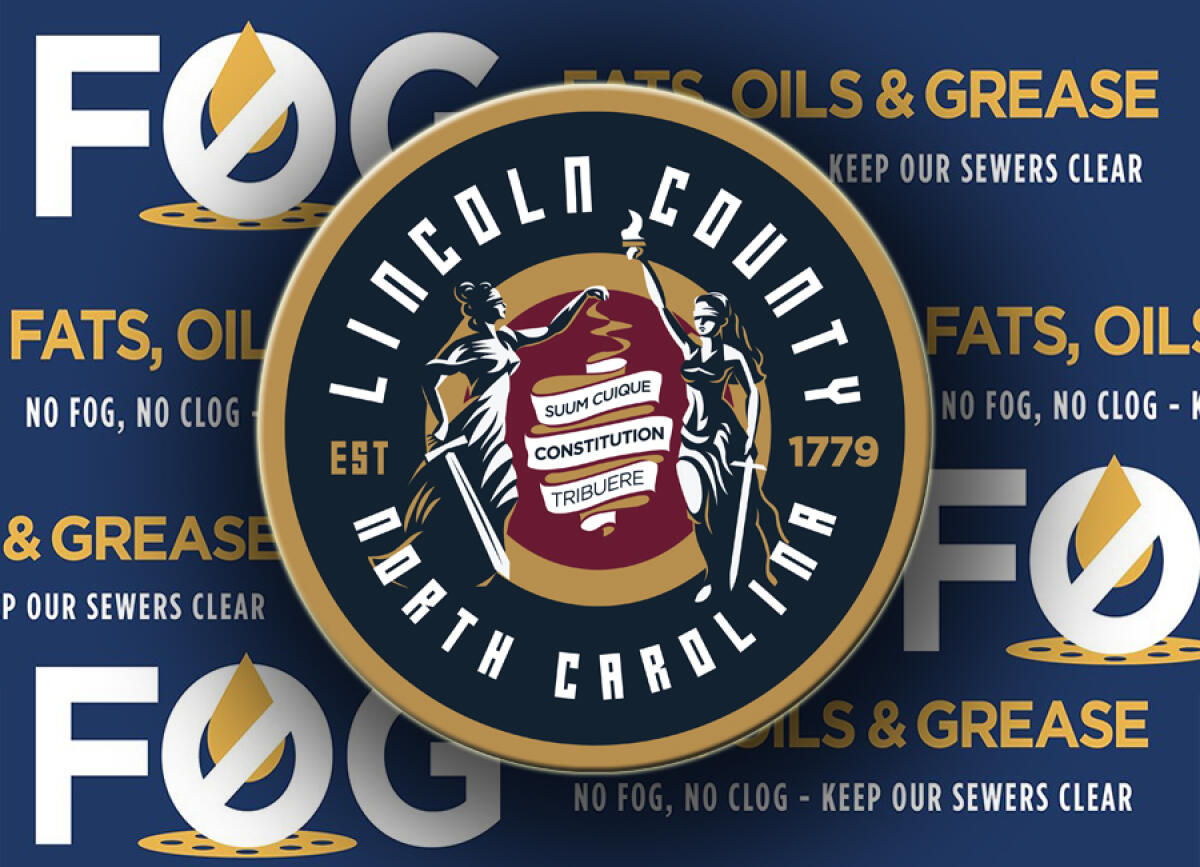- Monday, 9 February 2026
- Have a HOT TIP? Call 704-276-6587 or E-mail us At LH@LincolnHerald.com
Board Passes Policy On Fats, Oils & Grease
Unanimous agreement on protecting sewer system

LINCOLNTON––Bet you don’t think much about fats, oils and grease.
At least until your kitchen sink gets clogged up. And if you don’t have a dispose-all device installed, good luck. Fats, oils and grease (or FOG, as they’re aptly called) can be a real hassle. Nobody wants to get out the plunger and/or that smelly “Drano” or its generic equivalent to tackle these problems, however much of a regular occurrence they may be in countless kitchens.
Talking of dispose-alls, many public works staffers across America would love to see the little buggers banned altogether. They’re not necessarily the convenience many cooks fancy they are, and they can in fact cause more harm than good by allowing FOG to escape into sewer systems.
According to Wastewater Digest, “Fats, oils and grease pose a frequent and costly challenge for sewer systems, because they cause blockages and corrode pipes.”
And at its regular meeting Monday, the Lincoln County Board of Commissioners heard from county engineer Jonathan Drazenovich of the Lincoln County Public Works Department on the subject of FOG. After his presentation, the board unanimously passed a salutary policy on FOG as it relates to various businesses.
“This is a very important topic on our sewer system,” Drazenovich told the board, adding that fats, oils and grease and the clogs they cause in the sewer system can pose a serious environmental risk.
He cited a policy and permitting program pertaining to this slimy problem as it affects restaurants, automotive mechanics’ garages, grocery stores, car-wash facilities and other such places where fats, oils and grease can cause major headaches.
“They solidify in our pipes,” Drazenovich said, “and we have problems with cleaning those pipes.”
That program mandates a universal compliance on the part of FOG-discharging commercial and industrial establishments with the County’s sewer-use ordinance and all applicable state and federal laws. With regard to the County’s sanitary sewer system, the aforesaid establishments are required to install and/or maintain grease-interceptors or traps. The goal is to prevent environmentally dangerous blockages and overflows (an inadvertent spill of raw sewage, for example) within the sewer system.
Addressing such accidents is costly for the County, Drazenovich noted, and it's dangerous for North Carolina’s public water system. He added that this policy is in no wise intended to discourage development. It’s merely a necessary precaution that must be taken for a host of reasons legal, financial and environmental in nature.
To a query from commission chairman Cathy Davis, Drazenovich said the policy jibes with both State of North Carolina requirements and the County’s sewer-use ordinance. To Commissioner Carrol Mitchem, Drazenovich said the program requires all concerned establishments not to produce FOG-related constituents beyond County ordinance-approved levels (100 milligrams per liter), and if they do, mitigation will be required. He added that monitoring downstream manholes and fines for violators are potentialities.

 Editor , Thomas Lark
Editor , Thomas Lark












